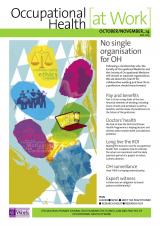October/November 2014 (vol. 11/3)
ContentsFeaturesNewsLegal
NewsResearch DigestResearch PlusCPD
Research Plus
Supportive leadership key to preventing long-term absence
A prospective cohort study involving 6,758 workers in Norway identifies three psychosocial factors as predictive of long-term sickness absence (LTSA), together accounting for 15% of all LTSA at population level. Participants had all been in paid work during a reference week at the beginning of the study and had worked at least 100 days in the previous year. Psychosocial risk factors were assessed using standard questionnaires. In total, 635 individuals (9.4%) had been on LTSA (at least 40 days) in the year after the initial survey. After controlling for confounding factors – such as age, sex, education, health conditions and smoking status – significant psychosocial factors predicting LTSA were: role conflict (odds ratio (OR) = 1.58; CI 1.20–2.09), emotional demands (OR = 1.32; CI 1.03–1.69), and low supportive leadership (OR = 1.50; CI 1.15–1.96). There were three elements to the measurement of supportive leadership – does the employee’s immediate supervisor: provide help when needed; show appreciation for work done; and treat employees fairly and equally? Bullying and job strain were not predictive of LTSA after controlling for other factors.
Occupational Health at Work October/November 2014 (vol. 11/3) pp44-45



